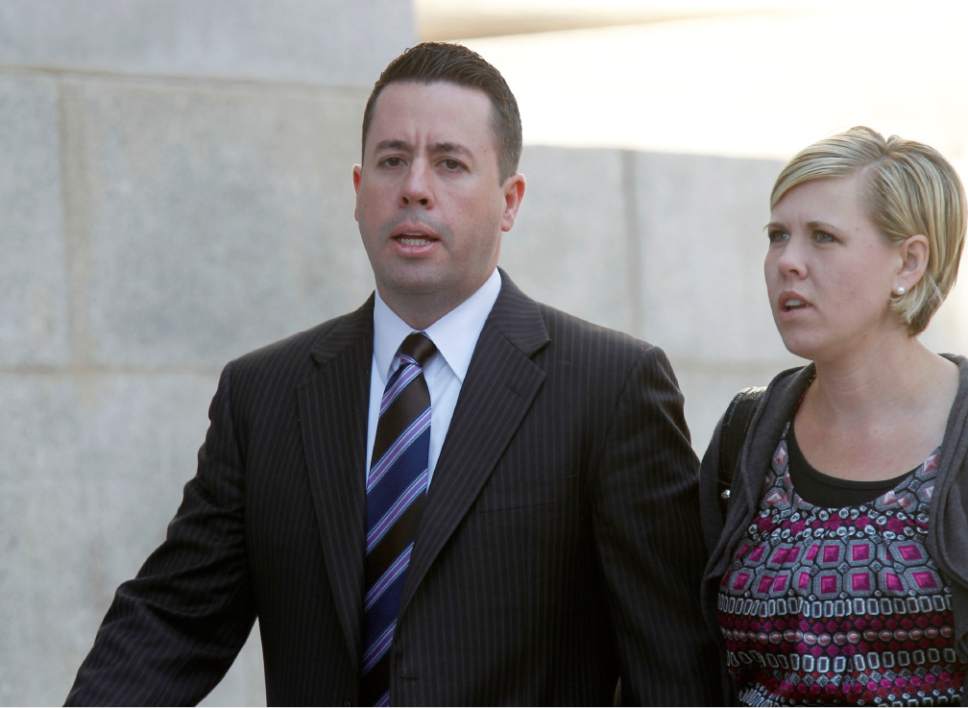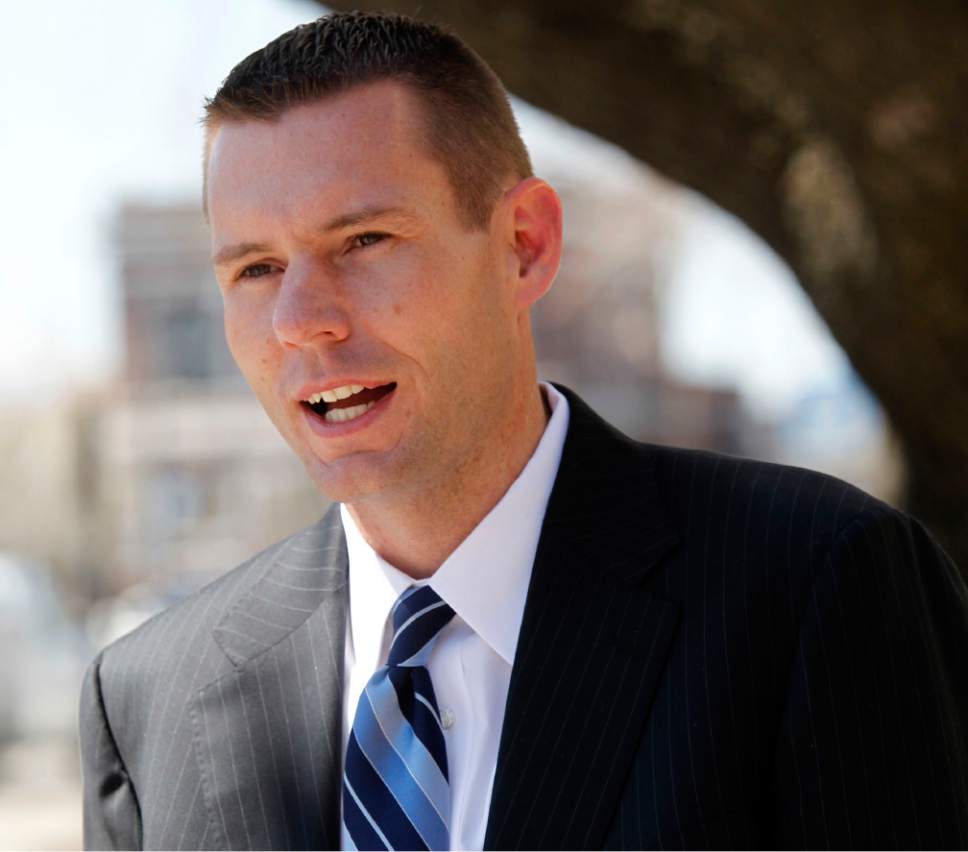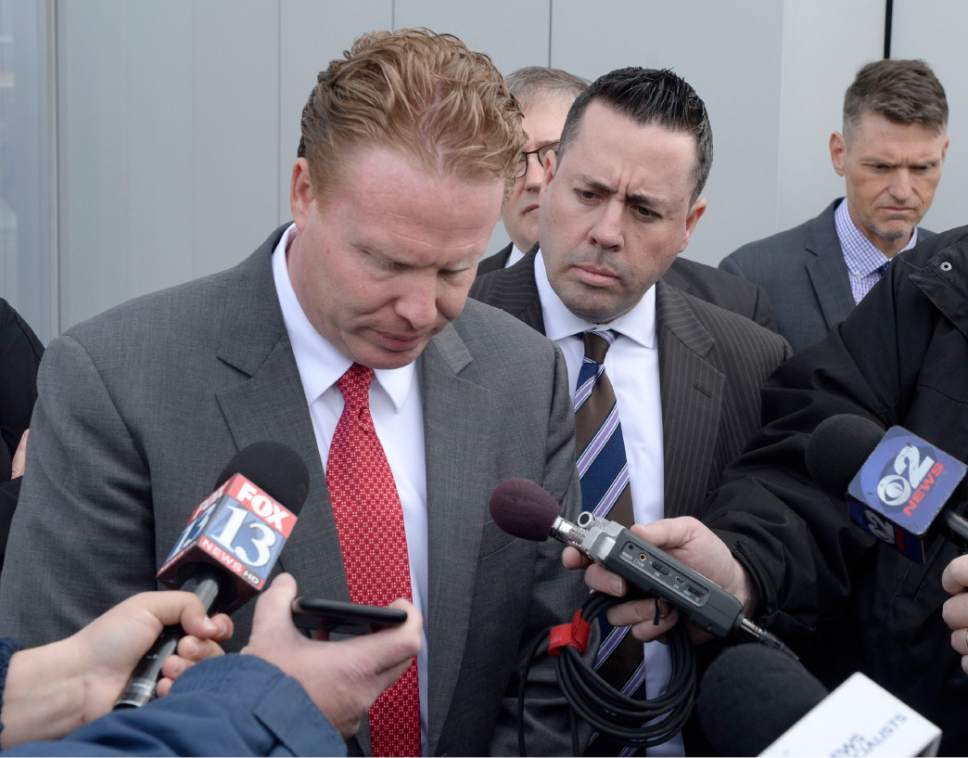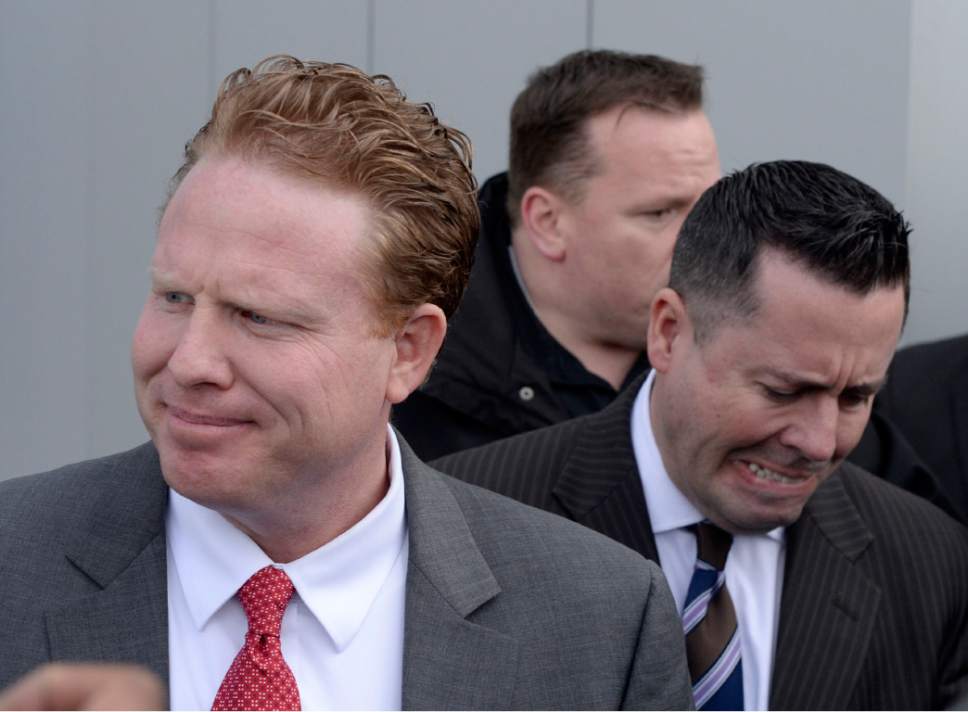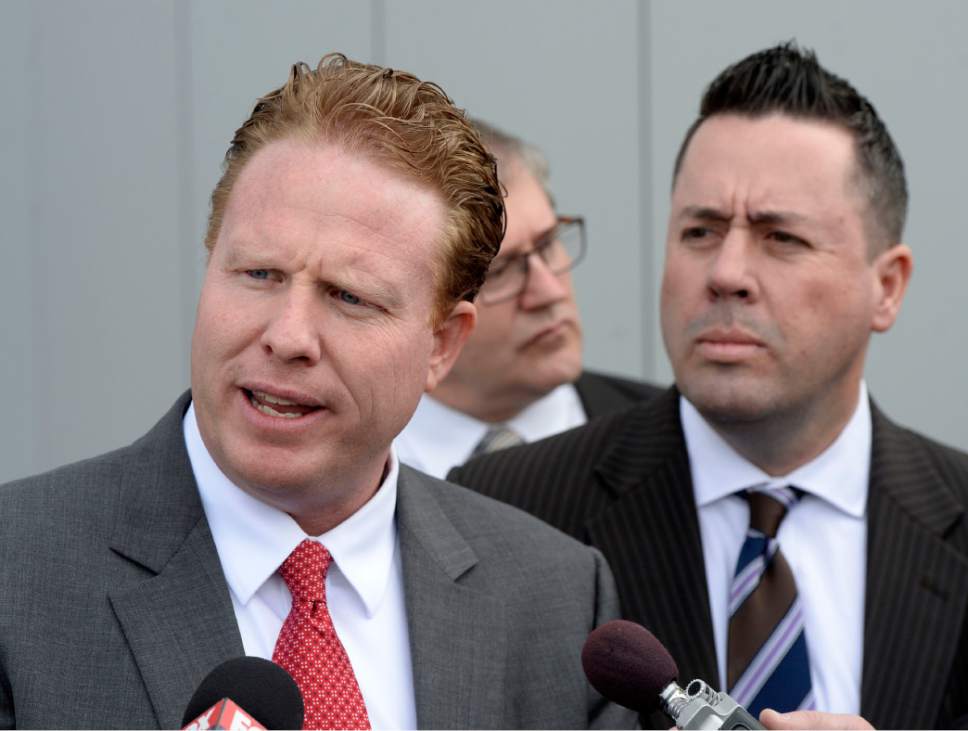This is an archived article that was published on sltrib.com in 2016, and information in the article may be outdated. It is provided only for personal research purposes and may not be reprinted.
Two members of the jury in the just-concluded Jeremy Johnson trial said they found him not guilty on 78 charges because evidence showed that the online entrepreneur didn't intend to defraud a bank and they came to believe prosecutors kept the defense from presenting possible crucial evidence in what they characterized as an unfair trial.
In the end, after eight weeks of testimony and evidence, and six days of sometimes tense deliberations, the jury convicted Johnson on eight counts of providing false information to a bank.
That compromise was possible because those charges carried no requirement that the evidence show Johnson had intended to commit the crime. Still, the jurors believed that only one simple thing was false on the eight account applications at issue: the number of employees that were listed for the companies in whose names the forms were submitted.
Jurors Kathie Cox and Shelly Riley said in interviews they were among jurors who began deliberations March 18 convinced Johnson and two co-defendants should be found not guilty on all charges. Another faction wanted them convicted on all charges, and some were fence sitters.
But after six days of back and forth, said Riley, "we compromised. The false statements to a bank were the least out of everything."
A third juror who turned out to be an alternate and did not participate in the deliberations said he would have convicted Johnson and co-defendants on more charges. The three jurors were the only ones who responded to requests for interviews that were, by court order, channeled through U.S. District Judge David Nuffer.
Johnson and Scott Leavitt, the former accountant at Johnson's I Works company, faced 86 charges, and former General Manager Ryan Riddle faced 56 counts, all related to bank accounts opened in 2009 and 2010. Prosecutors alleged that Johnson directed others to create a string of shell companies using personal information from employees and family members and then used those companies to open accounts by submitting false information to Wells Fargo Bank.
That was necessary, prosecutors claimed, because Johnson did not want his name to be associated with the new companies after I Works' own accounts were shut down because of a large number of credit card chargebacks.
Riddle was convicted of six of the same charges as Johnson. The two jurors said they believed all the information submitted on the account applications was accurate — the companies were set up legally and the owners listed were actual owners — but the number of employees was false.
Leavitt was found not guilty on all counts. In fact, Cox and Riley said that by about halfway through deliberations, none of the jurors thought Leavitt should be convicted.
One key issue at the trial was the role of Wells Fargo Bank, the entity that was allegedly defrauded. Prosecution witnesses said that Wells Fargo held the accounts in question but testimony showed the bank had a minor role and had actually delegated authority to open accounts to a credit card processor called First Data Corp., and CardFlex, a marketing company that worked with it.
Cox pointed to applications supposedly for accounts at Wells Fargo that were not even signed by a bank employee, as credit card companies required.
"It appears to me they just washed their hands of the whole thing: 'You do what you want. We're just going to sit up here and make our money,' " said Cox. "That's one of the reasons I found them not guilty."
She also said evidence clearly showed that First Data and CardFlex knew all the accounts were connected to I Works and that she didn't believe witnesses who testified the opposite.
Cox said evidence showed that I Works' role was known by First Data and CardFlex.
"There was no intend to defraud the bank," Cox said.
Riley also emphasized the lack of evidence about the exact role of Wells Fargo.
"Wells Fargo didn't bring this case, the government did," she said. "So why is there all this information missing from Wells Fargo."
Leavitt's attorney, Marcus Mumford, had subpoenaed Wells Fargo for possible evidence before the trial and received some. But his request for more documentation was ultimately quashed by Nuffer.
Prosecutors had put on as witnesses a number of former I Works employees whose names were used to start companies and open bank accounts but who said they weren't aware of what had been done in their names.
Both jurors, however, pointed to documents that the defense had found during the trial and presented to counter that testimony. The evidence, which the defense had sought from prosecutors before trial, included contracts and powers of attorney the employees had signed authorizing I Works to open accounts in their names and sign documents on their behalf.
"That changed everything," said Cox. "It would have been a very, very different [conclusion] if we had not had those."
Cox said she kept detailed notes and would spend a couple of hours each day after the trial ended going over them, trying to piece together the evidence.
She concluded that the role of affiliate companies for which I Works provided credit card and other services was also crucial to the case. The defendants had wanted to argue that fraud by some affiliates caused I Works' chargeback problems but Nuffer had signed an order before trial prohibiting the use of "affiliate fraud" as a defense, though those issues did creep into the trial.
"The thing that really bothered me the most was the affiliate fraud thing, because it seemed like anytime anybody tried to bring in something substantive about the affiliate fraud they were shut down," Cox said. "They tried to say, 'Well this is why we were doing this,' but they weren't allowed to use it as a defense."
Cox and Riley also pointed to the numerous objections raised by prosecutors that were sustained by Nuffer and which kept out much of the evidence the defendants tried to introduce.
"It just felt like they were hiding something," Cox said of prosecutors. "And that's not something you want the jury to feel."
Said Riley, "How can we convict these guys when we don't have all the information, therefore we had reasonable doubt."
In contrast, Spencer Larsen, an alternate juror who sat through all the testimony but did not participate in deciding the verdicts, said he would have pushed for a conviction on more charges.
"What they did was wrong. That's why they were convicted," he said. "I think it should have been a little bit more."
Evidence had been excluded from the trial, but "that's just part of the system," Larsen said.
Cox and Riley also said they were bothered by the exclusion of any testimony from the defense's expert witness. Mumford had called to the stand Gene Hoffman, who provides merchant services to companies and has a list of entrepreneurial successes. But after a partial prosecution objection to his designation as an expert, Nuffer prohibited Hoffman's testimony.
The jury had heard Hoffman on the witness stand describe his background, but then returned from a break to find another witness on the stand.
"We were all annoyed, very annoyed," Cox said, "because we were like, we would have liked to hear what he had to say because what we heard, he absolutely would have been knowledgeable."
Before the trial, Nuffer issued a number of orders that restricted possible defenses, and during the trial sustained numerous objections from prosecutors.
One count by the defense showed that the government made 2,684 objections during the trial, of which Nuffer sustained 66 percent. The judge sustained just 12 percent of the defense's 364 objections, according to that tally.
Cox and Riley were both critical of Nuffer's conduct of the trial. They pointed to the objections he sustained and also his treatment of Mumford. Nuffer harshly shut down Mumford a number of times, at least twice called court security to the front of the courtroom during oral clashes and one day called three timeouts, during which the courtroom sat in silence for one minute.
"I will say that I felt Judge Nuffer was biased," said Cox, who shortly after the verdict defended the jury's decision as "The Juror" on The Salt Lake Tribune website.
Cox and Riley also said they were upset that Nuffer had sent Johnson to jail last week to await sentencing on June 20.
But Cox said Nuffer's conduct did not affect her decisions during deliberations.
Riley said, "I felt the judge was very biased toward the prosecution and it didn't help the prosecution."
Riley said she was embarrassed when Nuffer called security guards or timeouts during his clashes with Mumford.
Larsen, however, said he found Nuffer "more than fair during the trial."
In the end, Riley said she doesn't believe the case should have been brought trial.
"I really think it was an incredible waste of our taxpayer dollars," she said.


